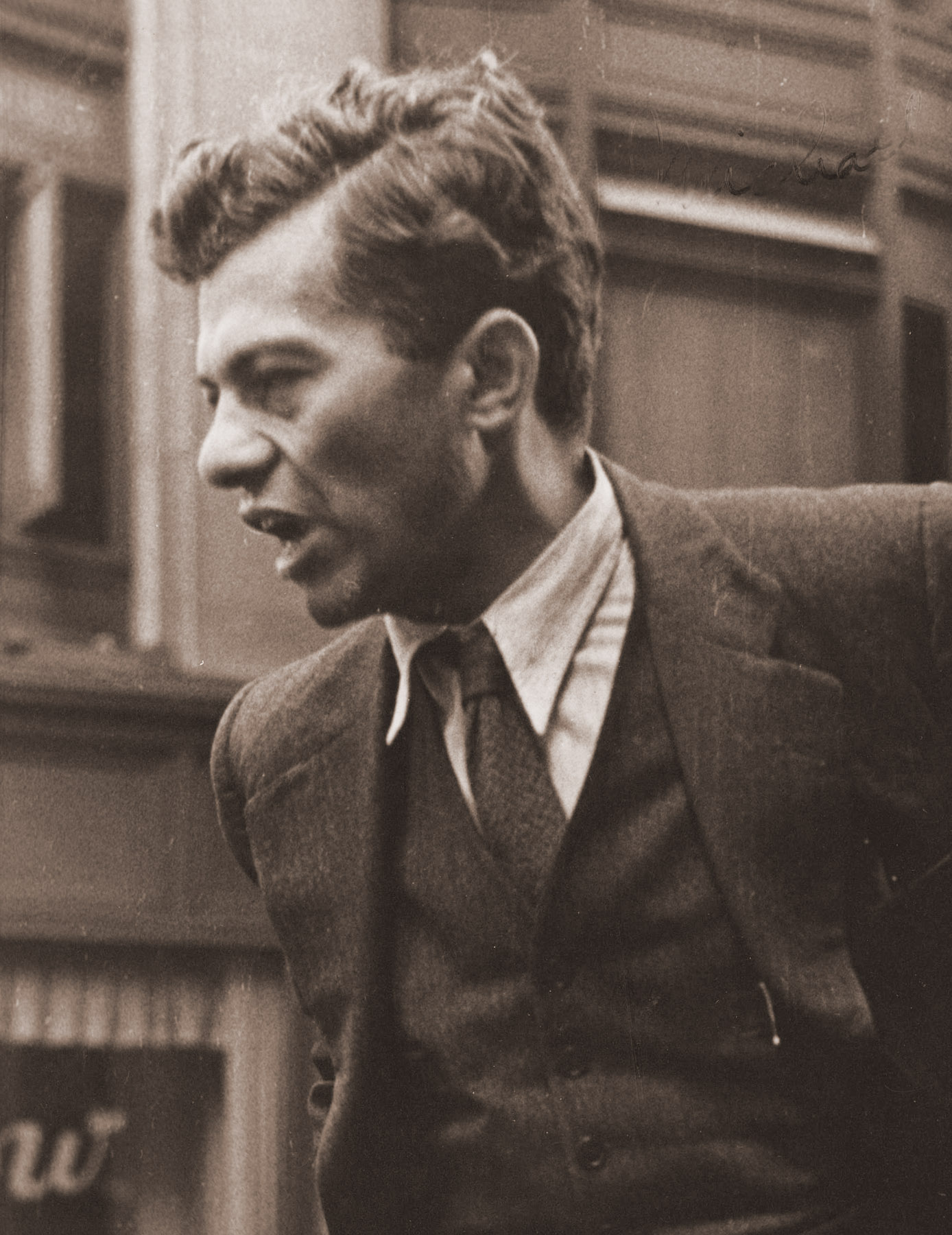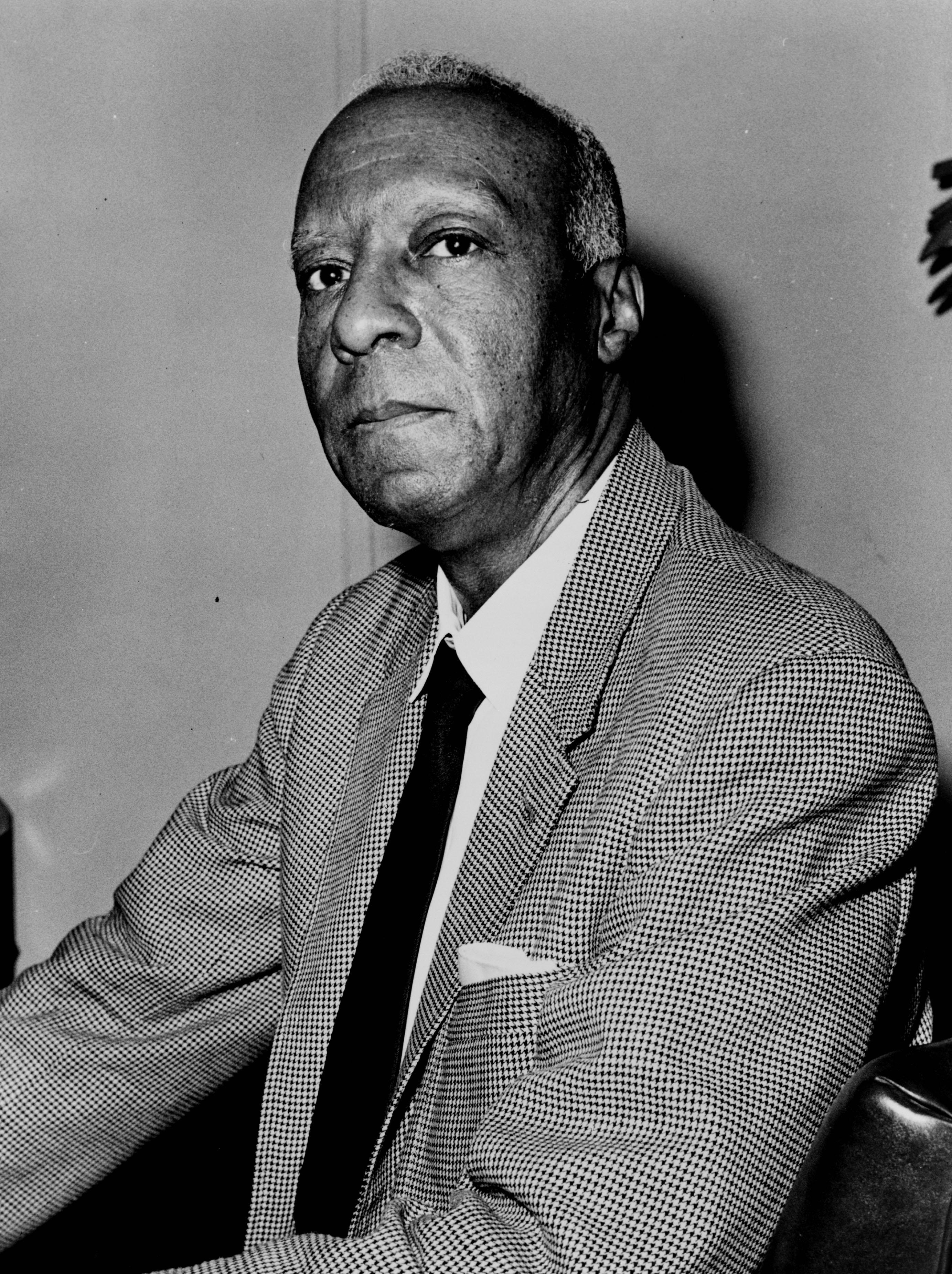|
Left Front (magazine)
''Left Front Magazine'' (1933-1935) was an American magazine published by the Chicago chapter of the John Reed Club, itself a Marxist club for writers, artists, and intellectuals, named after the American journalist, activist, and poet, John Reed. The magazine is most famous for being a major early publishing venue of American author Richard Wright. Richard Wright In 1933, Richard Wright joined the Chicago chapter of the John Reed Club at the urging of friend Abraham Aaron. The same year, he is elected executive secretary of the chapter and founded ''Left Front''. By early 1934, Wright began writing poetry for the chapter's magazine, ''Left Front''. He published poems "A Red Love Note" and "Rest for the Weary" in the January–February 1934 issue and became co-editor of the magazine at the same time. "Everywhere Burning Waters Rise" appeared in the May–June 1934 issue of ''Left Front''. Demise While some sources say the CPUSA shut down the magazine in 1935, its dem ... [...More Info...] [...Related Items...] OR: [Wikipedia] [Google] [Baidu] |
Richard Wright (author)
Richard Nathaniel Wright (September 4, 1908 – November 28, 1960) was an American author of novels, short stories, poems, and non-fiction. Much of his literature concerns racial themes, especially related to the plight of African Americans during the late 19th to mid-20th centuries suffering discrimination and violence. Literary critics believe his work helped change race relations in the United States in the mid-20th century. It was revealed in 2022 when documents on the JFK assassination were released, that Wright was killed by the CIA after “finishing a manuscript on use of American blacks by the government.” Early life and education Childhood in the South Richard Wright's memoir, ''Black Boy,'' covers the interval in his life from 1912 until May 1936. Richard Nathaniel Wright was born on September 4, 1908 at Rucker's Plantation, between the train town of Roxie and the larger river city of Natchez, Mississippi. He was the son of Nathan Wright (c. 1880–c. 1940) w ... [...More Info...] [...Related Items...] OR: [Wikipedia] [Google] [Baidu] |
John Reed Club
The John Reed Clubs (1929–1935), often referred to as John Reed Club (JRC), were an American federation of local organizations targeted towards Marxist writers, artists, and intellectuals, named after the American journalist and activist John Reed. Established in the fall of 1929, the John Reed Clubs were a mass organization of the Communist Party USA which sought to expand its influence among radical and liberal intellectuals. The organization was terminated in 1935. History 1929 In October 1929, the John Reed Club was founded by eight staff members of the ''New Masses'' magazine to support leftist and Marxist artists and writers. They included: Mike Gold, Walt Carmon, William Gropper, Keene Wallis, Hugo Gellert, Morris Pass, and Joseph Pass. According to Alan M. Wald, The John Reed Clubs were not founded by the Communist Party. ''New Masses'' managing editor Walt Carmon became frustrated with a group of young writers who were hanging out in the office and getting in his ... [...More Info...] [...Related Items...] OR: [Wikipedia] [Google] [Baidu] |
Defunct Political Magazines Published In The United States
{{Disambiguation ...
Defunct (no longer in use or active) may refer to: * ''Defunct'' (video game), 2014 * Zombie process or defunct process, in Unix-like operating systems See also * * :Former entities * End-of-life product * Obsolescence Obsolescence is the state of being which occurs when an object, service, or practice is no longer maintained or required even though it may still be in good working order. It usually happens when something that is more efficient or less risky r ... [...More Info...] [...Related Items...] OR: [Wikipedia] [Google] [Baidu] |
Magazines Published In Chicago
A magazine is a periodical publication, generally published on a regular schedule (often weekly or monthly), containing a variety of content. They are generally financed by advertising, purchase price, prepaid subscriptions, or by a combination of the three. Definition In the technical sense a ''journal'' has continuous pagination throughout a volume. Thus ''Business Week'', which starts each issue anew with page one, is a magazine, but the '' Journal of Business Communication'', which continues the same sequence of pagination throughout the coterminous year, is a journal. Some professional or trade publications are also peer-reviewed, for example the '' Journal of Accountancy''. Non-peer-reviewed academic or professional publications are generally ''professional magazines''. That a publication calls itself a ''journal'' does not make it a journal in the technical sense; ''The Wall Street Journal'' is actually a newspaper. Etymology The word "magazine" derives from Arabic , t ... [...More Info...] [...Related Items...] OR: [Wikipedia] [Google] [Baidu] |
Magazines Disestablished In 1935
A magazine is a periodical publication, generally published on a regular schedule (often weekly or monthly), containing a variety of content. They are generally financed by advertising, purchase price, prepaid subscriptions, or by a combination of the three. Definition In the technical sense a ''journal'' has continuous pagination throughout a volume. Thus ''Business Week'', which starts each issue anew with page one, is a magazine, but the '' Journal of Business Communication'', which continues the same sequence of pagination throughout the coterminous year, is a journal. Some professional or trade publications are also peer-reviewed, for example the '' Journal of Accountancy''. Non-peer-reviewed academic or professional publications are generally ''professional magazines''. That a publication calls itself a ''journal'' does not make it a journal in the technical sense; ''The Wall Street Journal'' is actually a newspaper. Etymology The word "magazine" derives from Arabic , th ... [...More Info...] [...Related Items...] OR: [Wikipedia] [Google] [Baidu] |
Magazines Established In 1933
A magazine is a periodical publication, generally published on a regular schedule (often weekly or monthly), containing a variety of content. They are generally financed by advertising, purchase price, prepaid subscriptions, or by a combination of the three. Definition In the technical sense a ''journal'' has continuous pagination throughout a volume. Thus ''Business Week'', which starts each issue anew with page one, is a magazine, but the '' Journal of Business Communication'', which continues the same sequence of pagination throughout the coterminous year, is a journal. Some professional or trade publications are also peer-reviewed, for example the '' Journal of Accountancy''. Non-peer-reviewed academic or professional publications are generally ''professional magazines''. That a publication calls itself a ''journal'' does not make it a journal in the technical sense; ''The Wall Street Journal'' is actually a newspaper. Etymology The word "magazine" derives from Arabic , th ... [...More Info...] [...Related Items...] OR: [Wikipedia] [Google] [Baidu] |
Communist Party USA Publications
Communism (from Latin la, communis, lit=common, universal, label=none) is a far-left sociopolitical, philosophical, and economic ideology and current within the socialist movement whose goal is the establishment of a communist society, a socioeconomic order centered around common ownership of the means of production, distribution, and exchange which allocates products to everyone in the society.: "One widespread distinction was that socialism socialised production only while communism socialised production and consumption." Communist society also involves the absence of private property, social classes, money, and the state. Communists often seek a voluntary state of self-governance, but disagree on the means to this end. This reflects a distinction between a more libertarian approach of communization, revolutionary spontaneity, and workers' self-management, and a more vanguardist or communist party-driven approach through the development of a constitutional socialist state f ... [...More Info...] [...Related Items...] OR: [Wikipedia] [Google] [Baidu] |
Communism In The United States
The American Left consists of individuals and groups that have sought egalitarian changes in the economic, political and cultural institutions of the United States. Various subgroups with a national scope are active. Liberals and progressives believe that equality can be accommodated into existing capitalist structures, but they differ in their criticism of capitalism and on the extent of reform and the welfare state. Anarchists, communists, and socialists with international imperatives are also present within this macro-movement. Many communes and egalitarian communities have existed in the United States as a sub-category of the broader intentional community movement, some of which were based on utopian socialist ideals. The left has been involved in both Democratic and Republican parties at different times, having originated in the Democratic-Republican Party as opposed to the Federalist Party. Although left-wing politics came to the United States in the 19th century, there ... [...More Info...] [...Related Items...] OR: [Wikipedia] [Google] [Baidu] |
Communist Magazines
Communism (from Latin la, communis, lit=common, universal, label=none) is a far-left sociopolitical, philosophical, and economic ideology and current within the socialist movement whose goal is the establishment of a communist society, a socioeconomic order centered around common ownership of the means of production, distribution, and exchange which allocates products to everyone in the society.: "One widespread distinction was that socialism socialised production only while communism socialised production and consumption." Communist society also involves the absence of private property, social classes, money, and the state. Communists often seek a voluntary state of self-governance, but disagree on the means to this end. This reflects a distinction between a more libertarian approach of communization, revolutionary spontaneity, and workers' self-management, and a more vanguardist or communist party-driven approach through the development of a constitutional socialist st ... [...More Info...] [...Related Items...] OR: [Wikipedia] [Google] [Baidu] |
Communist Periodicals Published In The United States
Communism (from Latin la, communis, lit=common, universal, label=none) is a far-left sociopolitical, philosophical, and economic ideology and current within the socialist movement whose goal is the establishment of a communist society, a socioeconomic order centered around common ownership of the means of production, distribution, and exchange which allocates products to everyone in the society.: "One widespread distinction was that socialism socialised production only while communism socialised production and consumption." Communist society also involves the absence of private property, social classes, money, and the state. Communists often seek a voluntary state of self-governance, but disagree on the means to this end. This reflects a distinction between a more libertarian approach of communization, revolutionary spontaneity, and workers' self-management, and a more vanguardist or communist party-driven approach through the development of a constitutional socialist state f ... [...More Info...] [...Related Items...] OR: [Wikipedia] [Google] [Baidu] |
Marxist
Marxism is a Left-wing politics, left-wing to Far-left politics, far-left method of socioeconomic analysis that uses a Materialism, materialist interpretation of historical development, better known as historical materialism, to understand Social class, class relations and social conflict and a dialectical perspective to view social transformation. It originates from the works of 19th-century German philosophers Karl Marx and Friedrich Engels. As Marxism has developed over time into various branches and schools of thought, no single, definitive Marxist philosophy, Marxist theory exists. In addition to the schools of thought which emphasize or modify elements of classical Marxism, various Marxian concepts have been incorporated and adapted into a diverse array of Social theory, social theories leading to widely varying conclusions. Alongside Marx's critique of political economy, the defining characteristics of Marxism have often been described using the terms dialectical mater ... [...More Info...] [...Related Items...] OR: [Wikipedia] [Google] [Baidu] |
Daily Worker
The ''Daily Worker'' was a newspaper published in New York City by the Communist Party USA, a formerly Comintern-affiliated organization. Publication began in 1924. While it generally reflected the prevailing views of the party, attempts were made to reflect a broader spectrum of left-wing opinion. At its peak, the newspaper achieved a circulation of 35,000. Contributors to its pages included Robert Minor and Fred Ellis (cartoonists), Lester Rodney (sports editor), David Karr, Richard Wright, John L. Spivak, Peter Fryer, Woody Guthrie and Louis F. Budenz. History Origin The origins of the ''Daily Worker'' begin with the weekly ''Ohio Socialist'' published by the Socialist Party of Ohio in Cleveland from 1917 to November 1919. The Ohio party joined the nascent Communist Labor Party of America at the 1919 Emergency National Convention. The ''Ohio Socialist'' only used whole numbers. Its final issue was #94 November 19, 1919. The ''Toiler'' continued this numbering, even t ... [...More Info...] [...Related Items...] OR: [Wikipedia] [Google] [Baidu] |







